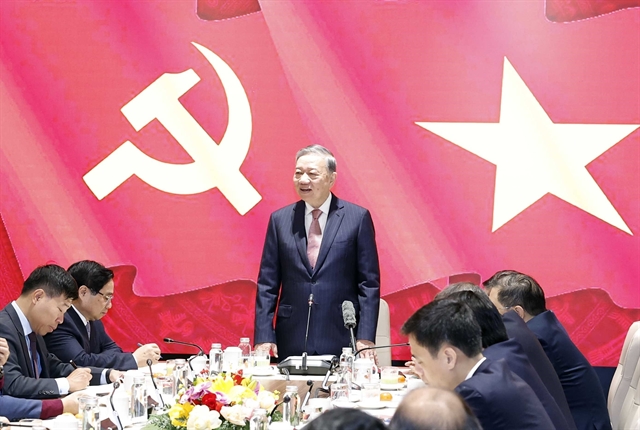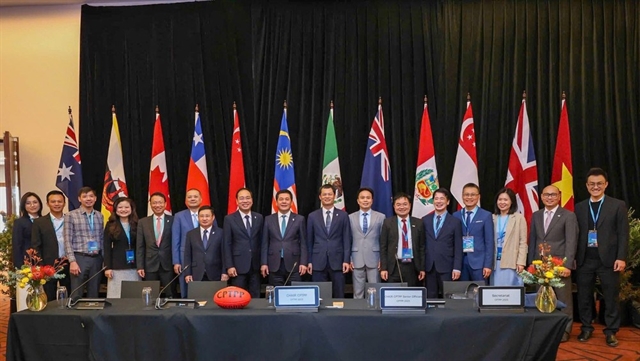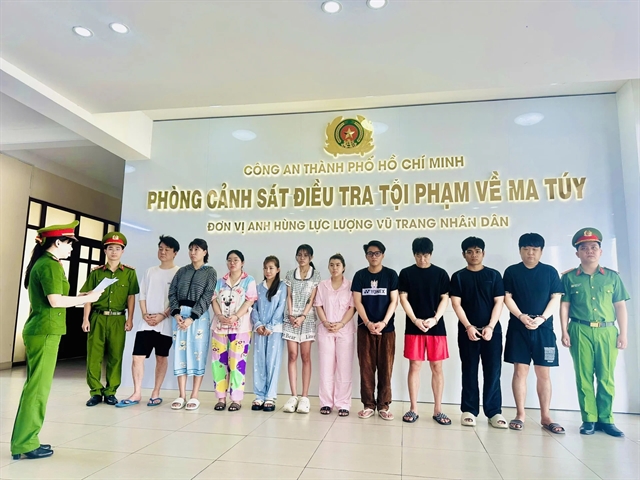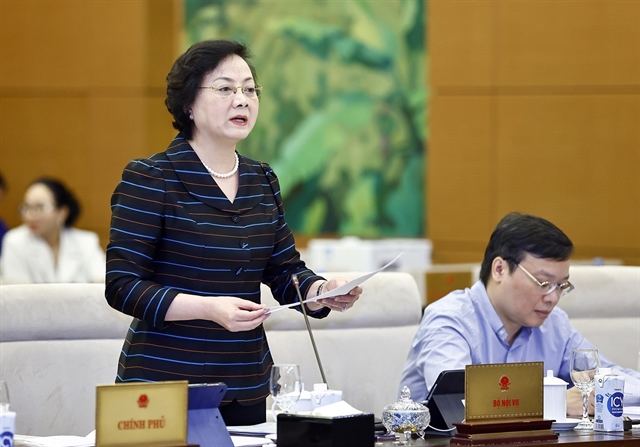 Politics & Law
Politics & Law

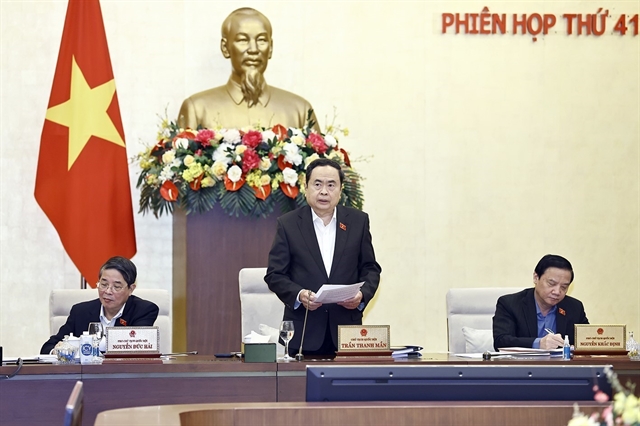 |
| National Assembly Chairman Trần Thanh Mẫn directs the session. — VNA/VNS Photo Doãn Tấn |
HÀ NỘI — The National Assembly (NA) Standing Committee on Tuesday morning discussed the plan on supervising the implementation of policies and laws on environmental protection since the Law on Environmental Protection 2020 took effect.
According to the proposed plan, agencies under supervision will include the Government, ministries in the fields of Natural Resources and Environment, Agriculture and Rural Development, Construction, Transport, Finance, Planning and Investment, Industry and Trade, Health, Public Security, National Defence, people's committees of 63 provinces and cities, along with other relevant organisations.
The supervision scope covers the environmental protection policies and laws nationwide from the effective date of the Law on Environmental Protection, until the end of last year, but also related to prior years and what is to follow.
The supervision focuses on the promulgation and completion of policies and laws on environmental protection, the National Environmental Protection Strategy establishment and appraisal.
In addition, the supervision plan also includes monitoring the implementation of policies and laws on environmental protection, focusing on assessing some key contents such as the arrangement and use of resources for environmental protection, integrating those protections into national environmental protection planning, regional planning and provincial planning.
The checks also cover the preparation, appraisal and approval of strategic environmental assessment (SEA), environmental impact assessment (EIA) and environmental protection contents in planning.
In addition it covers assessing pollution control activities, flood prevention in urban areas and waste management (including managing domestic solid waste, urban wastewater along with waste in agricultural, medical and construction activities).
The supervision also looks at inspection, auditing, compliance with environmental protection laws and handling of violations, combating and preventing environmental crimes, developing the carbon market and exchanging forest carbon credits.
The monitoring delegation will hold four plenary sessions and organise four direct monitoring delegations in 15 localities, including Hà Nội, HCM City, Đà Nẵng, Cần Thơ, Bình Dương, Long An, Trà Vinh, Hải Phòng, Thái Nguyên, Quảng Ninh, Bắc Ninh, Thanh Hóa, Quảng Ngãi, Bình Thuận and Lâm Đồng.
The monitoring period will be from the end of June to before July 31 this year.
Discussion
Through discussion, the NA Standing Committee members basically agreed with the draft supervision plan.
Emphasising that after monitoring, there must be positive changes, NA Deputy Chairman Trần Quang Phương suggested clearly identifying a number of key issues emerging nationwide, such as household waste pollution in craft villages, industrial parks, rivers, coastal areas, urban areas and at the same time forecasting electronic waste such as electric vehicles and solar panels.
He said that since the Law on Environmental Protection 2020 took effect, environmental impact assessment has been cumbersome. Therefore, it is necessary to clarify administrative procedures and provide guidance on standards and regulations on this issue to resolve and speed up the projects.
Speaking at the session, NA Chairman Trần Thanh Mẫn said that the monitoring topic on "Implementing policies and laws on environmental protection since the Law on Environmental Protection 2020 took effect" was very accurate.
Thus, the monitoring team must adhere to the main environmental indicators set forth in the 13th National Party Congress Resolution.
Specifically, indicators on using clean water and hygienic water by urban and rural residents, urban solid waste collection and treatment rate that meets standards and regulations, the rate of industrial parks and export processing zones with wastewater treatment systems that meet environmental standards and the rate of establishments causing serious environmental pollution that were punished.
The NA Chairman requested that the supervisory delegation must point out strengths and weaknesses, while conducting policies and laws on environmental protection, find out the causes of each violating unit and locality in environmental protection and accurately express aspirations of voters and people on environmental protection activities, along with proposing solutions to deal with urgent environmental issues in localities.
He noted that the monitoring delegation must point out specific locations such as which units and localities have shortcomings in environmental protection, the responsibility of each agency at the central level, the NA, the Government, ministries and localities in carrying out policies and laws on environmental protection. — VNS

